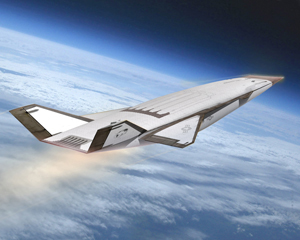 Deputy Defense Secretary William Lynn said that preserving the nation’s long range strike capability is a critical challenge, placing it among four top imperatives the Pentagon must address. Lynn said Jan. 21 at a Washington defense conference that the US must have the ability to confront distant and deep threats, but he acknowledged that the LRS mission is “fraught with challenges” that cannot be met by a single solution. He explained, “We will be maturing a portfolio of capabilities” that range from manned and unmanned systems to penetrating and standoff capabilities—as well as ballistic and cruise missile weapons. Lynn has no doubt that the new technologies will preserve the nation’s ability to swiftly confront security threats. (Also see An Answer on the Next Bomber below)
Deputy Defense Secretary William Lynn said that preserving the nation’s long range strike capability is a critical challenge, placing it among four top imperatives the Pentagon must address. Lynn said Jan. 21 at a Washington defense conference that the US must have the ability to confront distant and deep threats, but he acknowledged that the LRS mission is “fraught with challenges” that cannot be met by a single solution. He explained, “We will be maturing a portfolio of capabilities” that range from manned and unmanned systems to penetrating and standoff capabilities—as well as ballistic and cruise missile weapons. Lynn has no doubt that the new technologies will preserve the nation’s ability to swiftly confront security threats. (Also see An Answer on the Next Bomber below)
The U.S. military is sending more fighter jets to the Middle East to step up its war with Iran, adding to what is already the largest buildup of airpower in the region since the 2003 invasion of Iraq. For now, the operation shows little sign of coming to a quick…